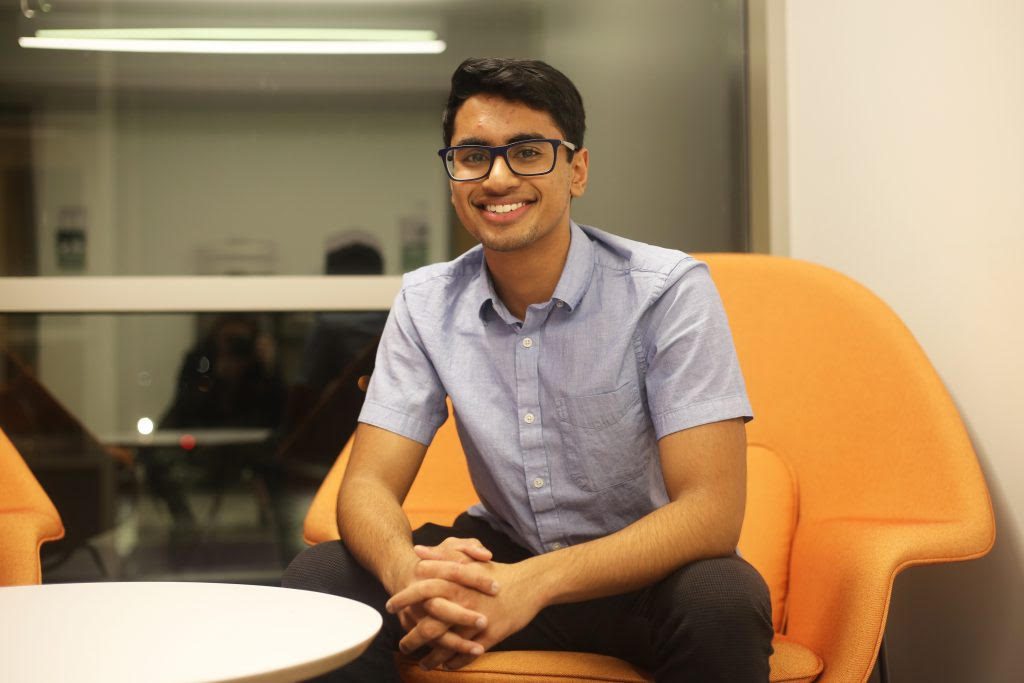Pipe Dream interviewed David Mathews, the student speaker for the TEDxBinghamtonUniversity event and a junior double-majoring in integrative neuroscience and philosophy. Mathews’s goal is to have a career within psychiatry and his talk, “The Stories We Tell Ourselves,” focuses on reflection as a method for growth.
Pipe Dream: Tell me a little bit about yourself and what inspired your talk.
David Mathews: The inspiration for this talk actually came from one of my introductory classes freshman year. We were basically told to give an oral presentation about ourselves. I took that as the opportunity to really create something that I could be proud of and that would really get the audience engaged. A big part of that, I knew, was using humor, so I think that features pretty prominently in my talk. I don’t want to give away too much, but that’s one of the biggest tools I use to really engage with my audience. One of the things I knew I could be humorous about was stories from my past, stories about myself, and I wanted to offer the audience my thought process in those stories, how I interpreted them then and how I use them now to advance myself and get further toward self-growth. Generally, that was the main inspiration of the talk. As for how it relates to me and myself, I’d say I’d always had more of the humanities [view] — taking ideas, looking at them deeply and processing them and working through them in that way. So, I think that the talk is quite true to myself in that sense, that although the ideas I present might seem a little simple on the surface, I think they can actually be pretty deep if you look at them deeply enough.
PD: Did that class inspire you to get into public speaking?
DM: Yeah. So, what happened with that class after I gave the talk was that people were pretty impressed, and one person said, “that should be a TED Talk.” I took that to heart, and it’s a TEDx Talk now. Also during my freshman year, I was part of mock trial, which was a great developer of my public speaking skills. But I’ve always had a passion for public speaking from basically my middle school years. I knew that that was something I really enjoy doing. I really enjoy getting in front of people and presenting my ideas. If there’s one way I can describe my brain, I get really annoyed when there’s one answer and I can’t get to it — I’d rather there be multiple answers, and I can word it my own way. In that sense, I’m more of an English rather than math sort of guy.
PD: How did you get involved with TEDxBinghamtonUniversity?
DM: Last year, around March, I watched the TEDx Talk from that year, and I saw that there was a student speaker — I wasn’t aware that there was a student speaker before that, so I saw that there was a position available. I said to myself, “Hey, I could do that.” I thought it would be something I’d find really meaningful, so I gave it a shot. Winter that year, I applied. A few weeks later, I received word that I’d won the position, so that was how I got involved.
PD: What are you hoping people gain from your talk?
DM: That’s something I’ve thought about a bit. I don’t have any specific, great, technical knowledge. I don’t have any really inspiring story from my life. I’m not exceptional in that sense. But I do think my talk is a good reminder about how people can think a little bit deeper about day-to-day things and can think a little bit deeper about their memories, their stories [and] the things that ordinarily would come up in their mind they just dismiss. I’m encouraging them to think that through a little more. I basically think that it’s a good reminder and a good model as to what you can use your stories and memories for.
PD: Is there anything else you want to tell prospective listeners?
DM: This is really a historic time and really a historic conference that we’re putting on here. I’m grateful to be a part of it, grateful to the [TEDxBinghamtonUniversity] interns, the whole team for putting together this event and making it possible. I really hope that among all of this chaos, all of this commotion, that this is a light people can look at and take some time out of their Sunday, watch these talks, get some ideas worth sharing, worth thinking about themselves and honestly, are better for it. I hope this is a light in a very confusing, dark time.



